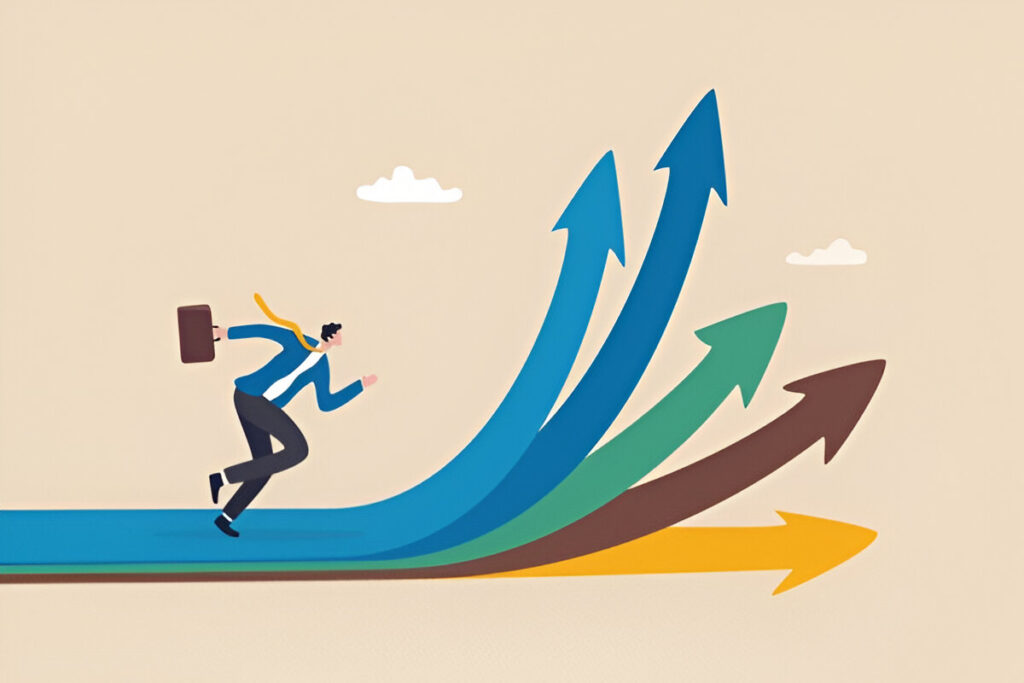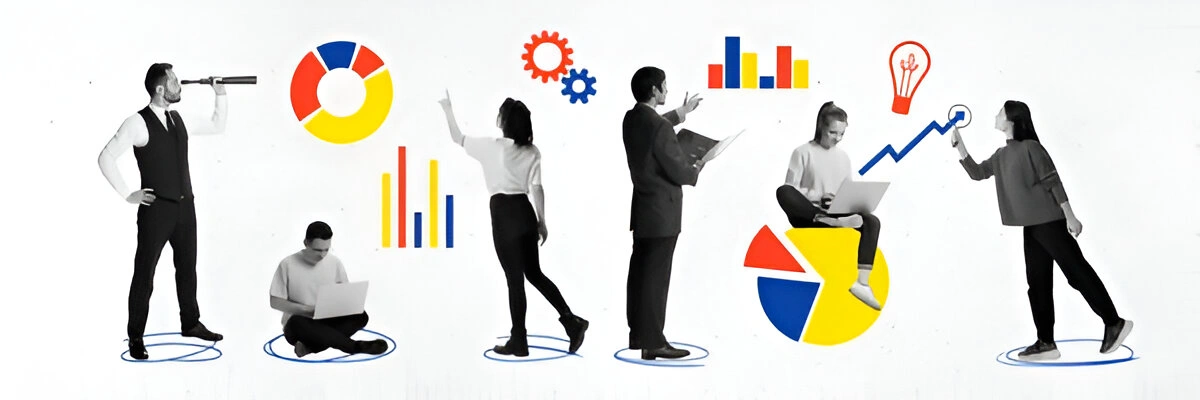Your professional advancement along with skills acquisition and discovering career possibilities throughout time contributes to achieving your job targets. All career development aspects combine strengths discovery along with interest mapping and necessitate continued learning so people can advance through professional networking. Professional development stands crucial for lifelong success combined with personal satisfaction since it helps professionals match their workplace route with personal targets while adhering to future market needs.
Understanding What is Career Development
Career development relies on your personal recognition of yourself along with planning for your career’s next move to take control of its path. As a journey which extends throughout our entire lifetime career development requires adjustments for changes in the job market and skill acquisition along with fundamental decisions regarding our professional lives.
Key Elements of Career Development
Self-Assessment
The process begins by understanding your strengths and weaknesses and values and personal interests.
To steer this process tools such as personality tests including Myers-Briggs as well as skills assessments prove useful.
Setting Career Goals
The process includes the creation of goals for immediate future use and for long-term objectives.
Goals should be SMART: Each achievement goal should be both specific and measurable along with being able to achieve and reconnect with relevant objectives and have defined time boundaries.
Skill Building
Overall development occurs through formal courses alongside informal instruction which enhances both theoretical and practical skill attainment.
Keeping current with industry trends together with the latest technological advancements.
Networking
Building and maintaining professional relationships.

By developing professional relationships you gain access to potential job paths along with advice from mentors and possibilities to work with others.
Continuous Learning
Lifelong learning activities ensure professional competitiveness.
Detailed skill growth results from studying certifications or attending training events and completing academic programs.
Feedback and Reflection
You should obtain feedback about professional development from mentors alongside peers and your supervisors on a regular basis.
The analysis of previous experiences leads you to discover ways you can improve your professional practice.
Career Transition Planning
You need to prepare in advance when shifting between industries or taking on new role responsibilities.
You need to build adaptable abilities which help your professional transitions flow easily.
The Benefits of Career Development
Professional Growth
Through career development you gain new skills and knowledge which boosts your career value in the eyes of employers.
Increased Job Satisfaction
Following what truly makes you passionate along with using your strong abilities creates enhanced fulfillment in professional work settings.
Better Financial Security
Your professional growth will progress through your career advancement stages. Advancing your career leads you to better jobs while extending your chances for new opportunities.
Enhanced Adaptability
Steering clear of career changes because industry trends and relevant expertise allows adaptation to market modifications.
Improved Confidence
Deciding what you excel at while creating specific career goals strengthens your confidence level.
Steps to Enhance Your Career Development
Define Your Vision
Your career goals need clarification about what you wish to achieve.
Consider what you aim to achieve professionally in addition to important personal values.
Research Your Industry
Understand market trends, in-demand skills, and potential growth areas.
Create a Development Plan
Identify specific actions which will help you accomplish your career targets.
Seek Mentorship
Sayno to learning opportunities from people who excel in your same trade.
Stay Open to Opportunities
Your career will expand by accepting chances to undertake major professional or job-related ventures.
Evaluate and Adjust
Regular assessments of your progress point to changes which need to be applied in your plan’s direction.
What is career development?
Career development represents the permanent process through which professionals manage their occupational advancement and capabilities together with their objectives to obtain professional achievement in their specialized area. Self-measurement leads into setting achievements with skill acquisition as individuals learn to integrate modifications from their industry environment.
Why is career development important?
Professional and personal advancement demands career development as an essential process. Through career development people can reach job fulfillment while strengthening their financial stability and learning to adapt to shifting industries as well as boosting their self-confidence.
What should my first step be for my career development process?
Your career development journey should start with understanding what your main strengths are together with your interests and your core values. Establish your future career objectives then analyze your field as you learn the necessary competencies.
You must earn essential competencies while creating remodeling your professional acquaintances.
Career development goals need to be SMART as part of their formal definition.
Goals with SMART characteristics serve as Specific Measurable Achievable Relevant and Time-bound targets that properly steer your career development process.
Networking provides what career development benefits?
Joining networks allows you to discover people who work in your industry as well as seasoned mentorship directorates and available career positions. The process allows you to accumulate more information which lets you follow industry trends and spot open opportunities in the market.
What position does education occupy within the process of professional growth?
Career development requires basic knowledge with specialized skills which education helps you acquire. To maintain competitiveness in your field you should continue learning through certifications or complete workshops or advance your education through degrees.
Do career development programs enable change between different careers?
Through career development you will acquire versatile skills together with deep industry understanding that lets you move successfully between career paths. The approach helps people spot opportunities while designing growth strategies for moving into new career paths.
What specific instruments exist to help individuals plan their careers?
The tools for development integrate tests of personality and skills alongside career mentoring and professional education and digital resources and networking opportunities.
At what intervals should I revise my career development strategy?
Update your career development plan periodically with special emphasis on updating at times of accomplishing goals or whenever your industry or career aspirations undergo changes.
Career development heavily relies on mentorship but what purpose does mentorship specifically serve?
That role of mentors involves guiding you through your job challenges and connecting relevant career opportunities to expand your position.
Does anyone have advice about how to maintain work-life balance during career progression?
Dedicate block scheduling to develop new skills and strengthen your network and gain knowledge. Your current professional position should serve as an opportunity to build new competencies.
Transferable skills serve what function precisely?
Multiple industries benefit from skills which transfer between different job roles including communication skills together with problem-solving and leadership abilities. These skills create both professional adaptability and increased worth in the employment sector.
Does career development create multifaceted solutions to maintain work-life balance?
Through career development you can create attainable goals while mastering time administration to match professional ambitions with personal standards which produces enhanced work-life stability.
Which business sectors provide the strongest support for career development?
Every business prioritizes career development however the fields of technology alongside healthcare and education together with finance specifically value ongoing skill advancement and learning to remain competitive.
Career development initiatives target exclusively people who are starting their professional journey.
Professional growth exists as a continuous process throughout your entire life. Career advancement through new objectives along with skill development is accessible to professionals from any career level and at every stage of their professional journey.
Final Thoughts
A successful career development journey involves both professional advancement alongside the quest for professional roles which match your professional aspirations and ethical framework. When you actively participate in your professional development you will unlock personal satisfaction alongside career excellence and enhanced resilience in changing job markets. Investing in your career development leads you toward lasting accomplishment and contentment whether you begin at the beginning of your profession or want to shift fields.


